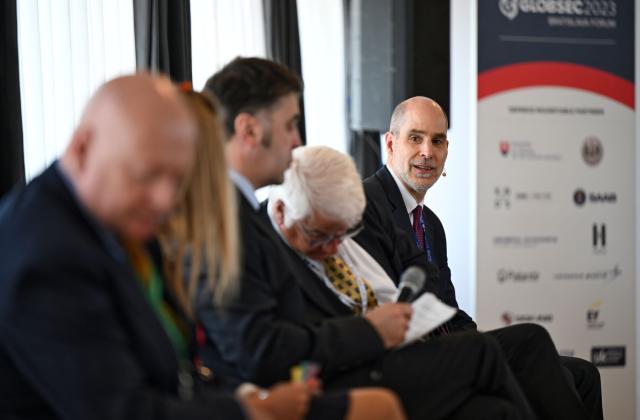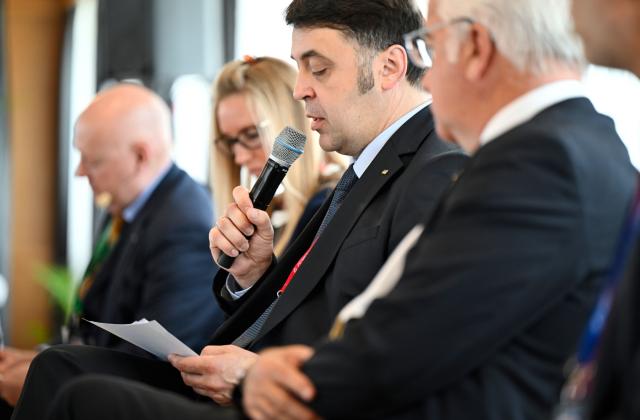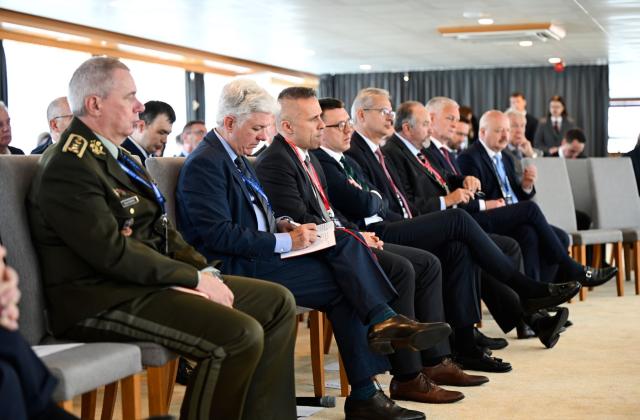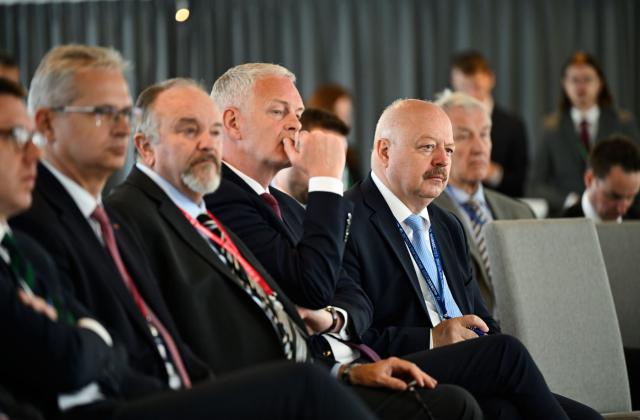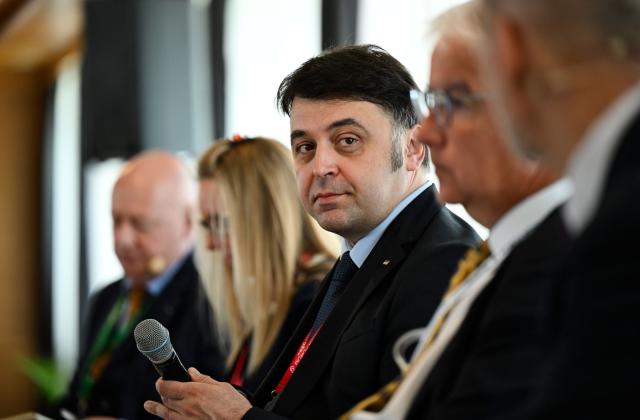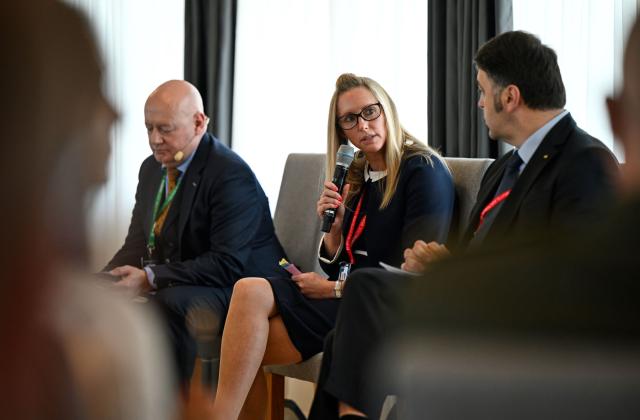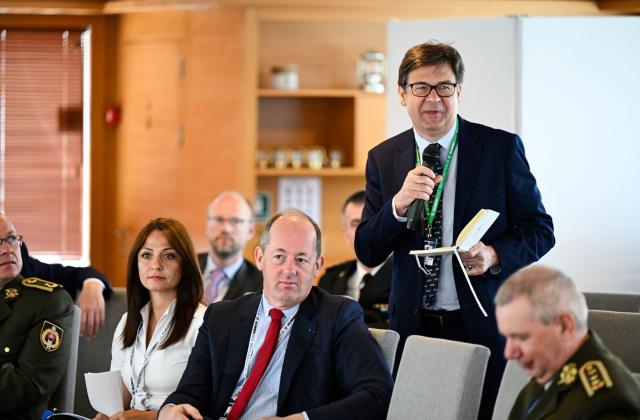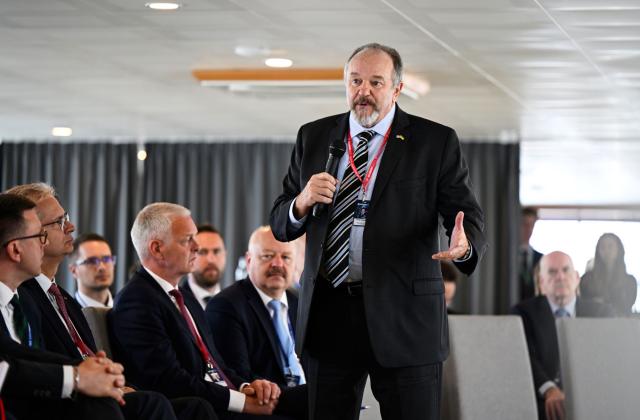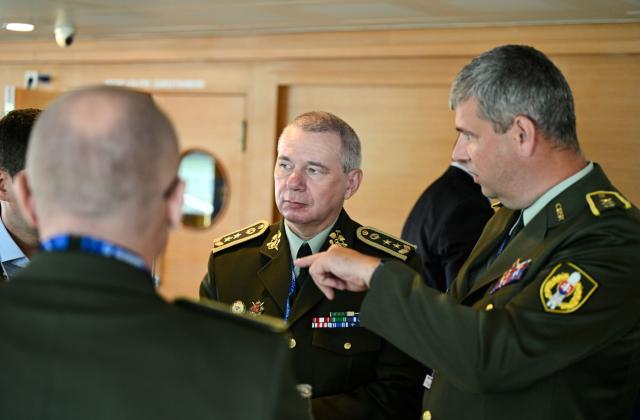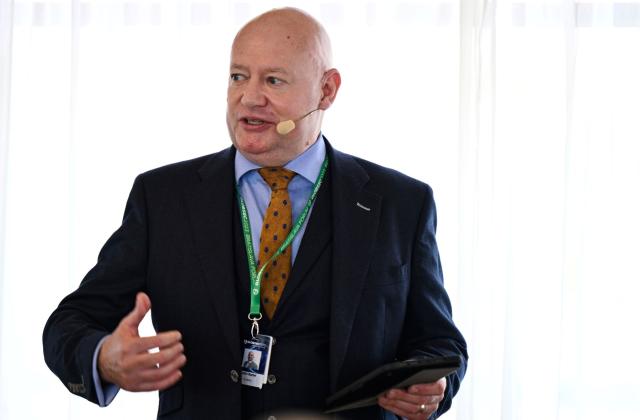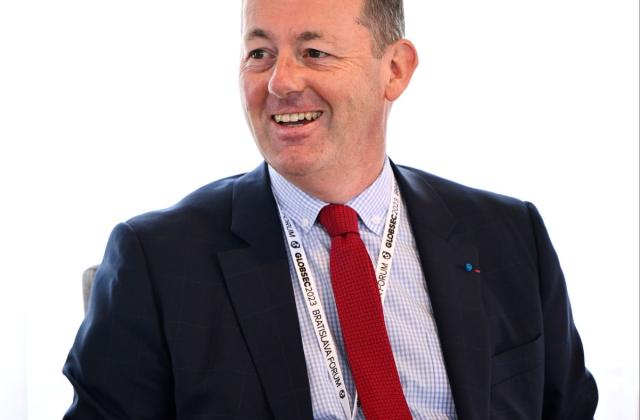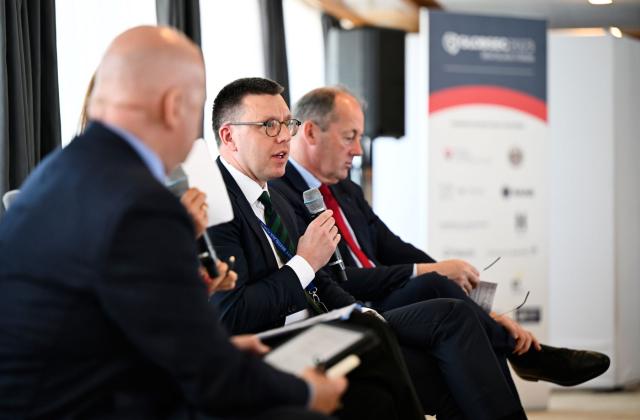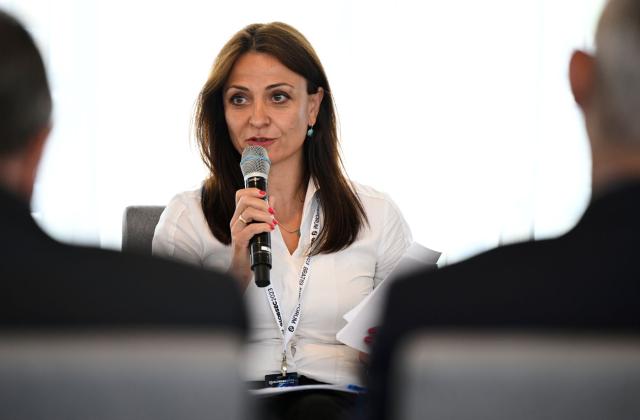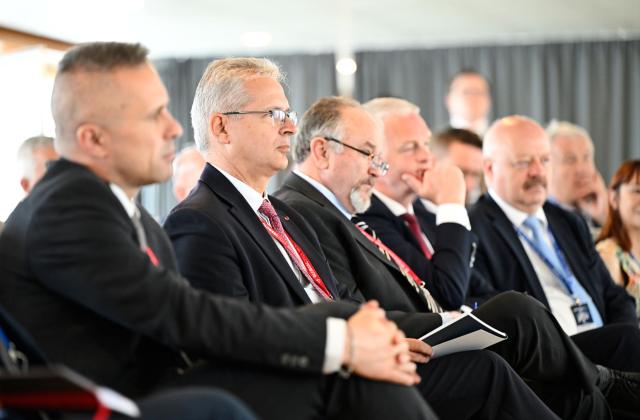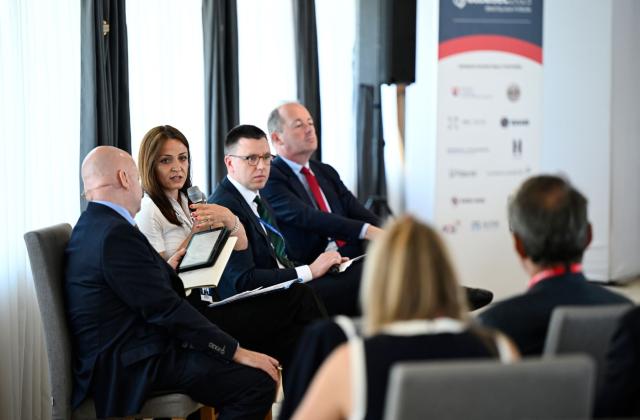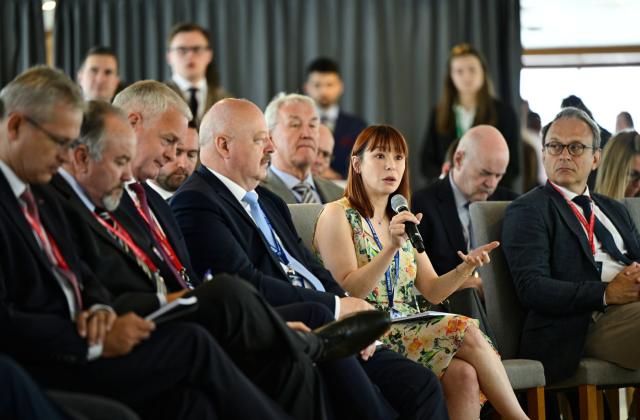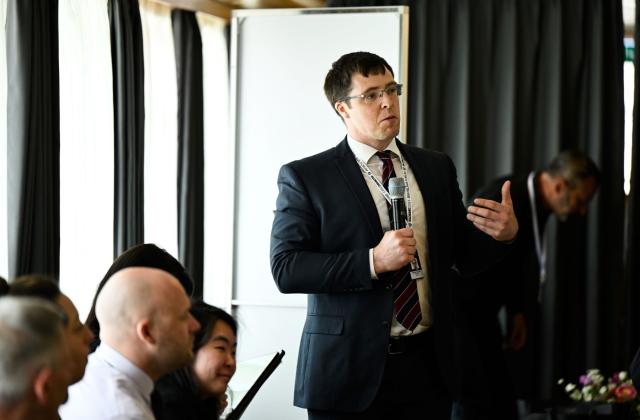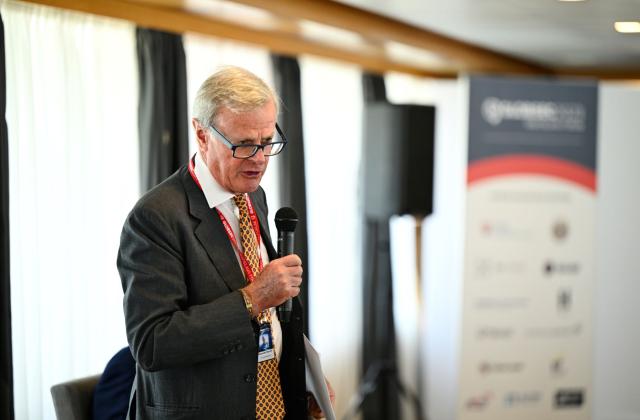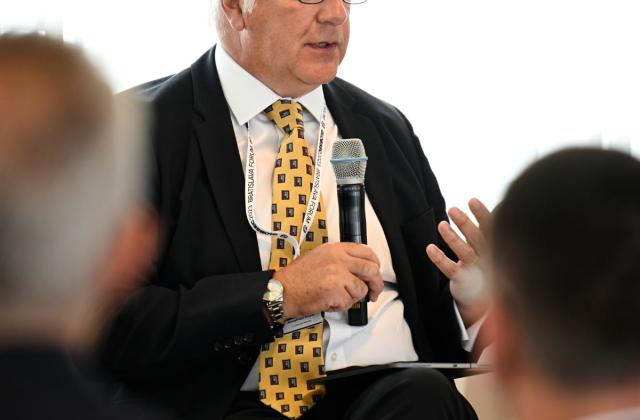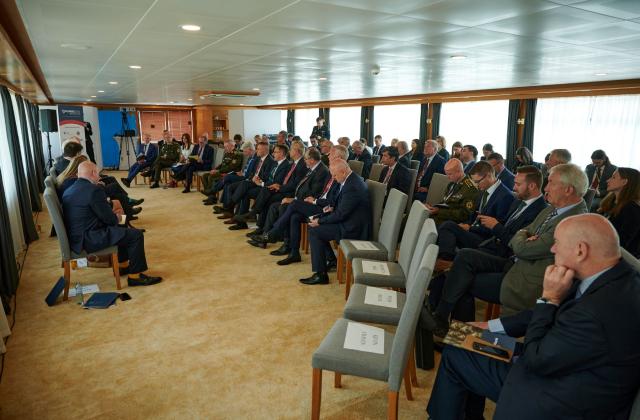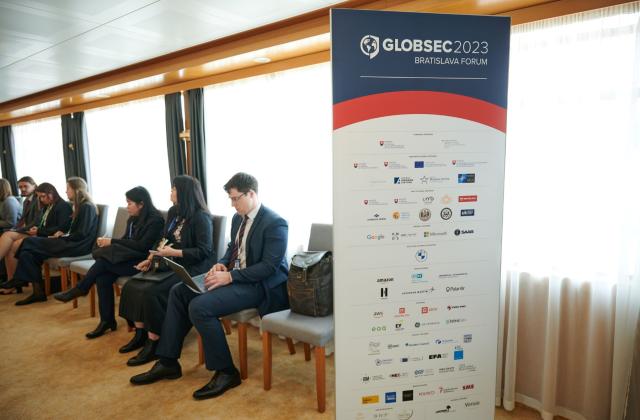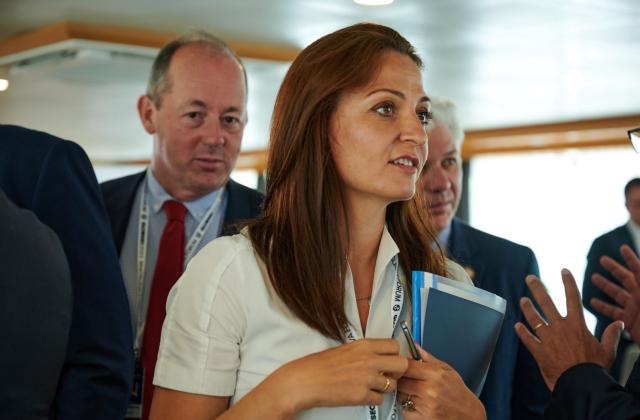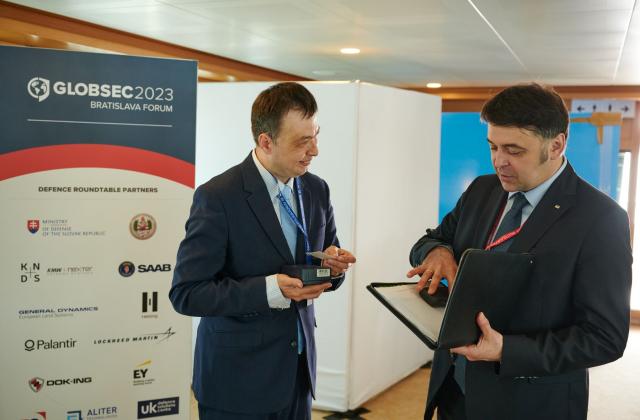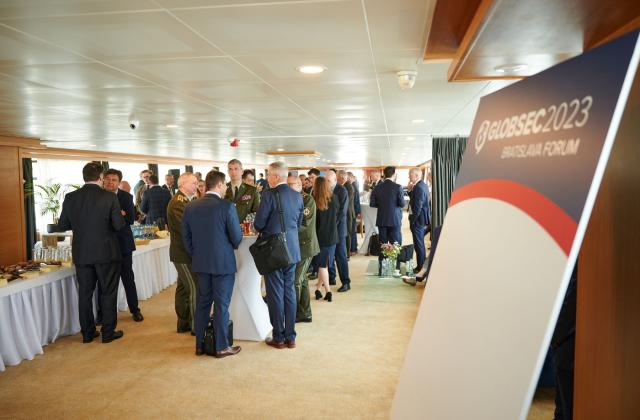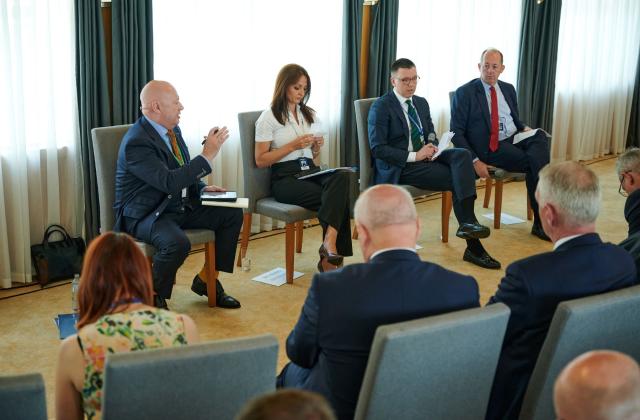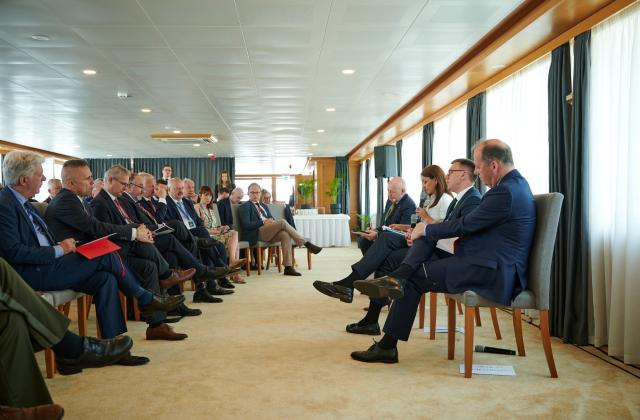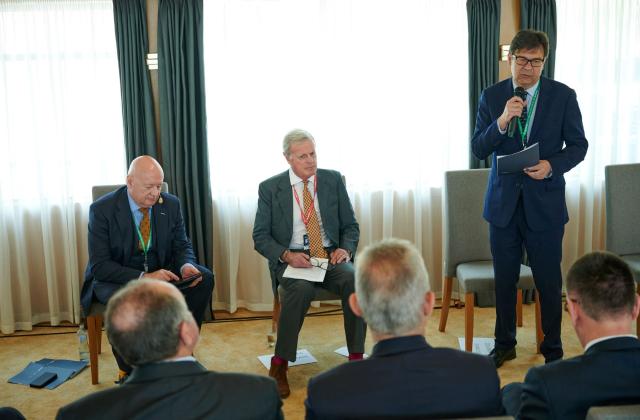GLOBSEC 2023 Bratislava Forum: Annual Defence Roundtable
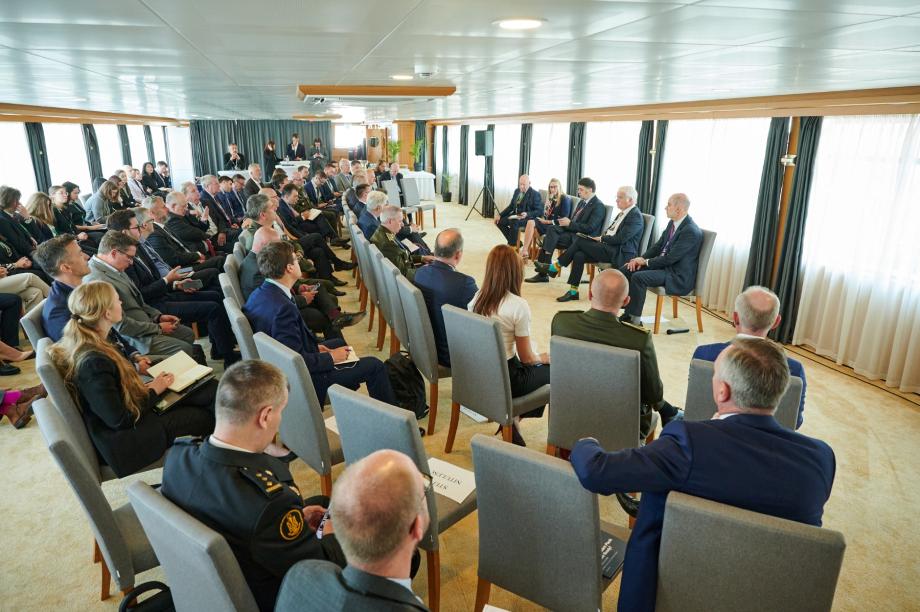
The War in Europe is now into its second year and when discussing the many lessons learned from this ongoing conflict, it is crucial to look for the answers through the optics of the private sector. This year we are facing the situation, where governments have to modernise and procure defence equipment as fast as possible. What are the lessons learned from an Industry perspective? What are governments doing to speed up the procurement processes? What needs to be done to help the defence industry to respond to this situation and ramp up to production to support Ukraine to meet future national and NATO deterrence needs.
This event was organised in collaboration with the Ministry of Defence of the Slovak Republic and the George C. Marshall European Center for Security Studies
Key Takeaways:
- The defence industry should be included in defence planning collaboration with state governments earlier to allow the industry to continue advancing across sectors. This would also establish a perceived competitive advantage.
- Ukraine is not only an example of conventional warfare, but also digital. It has continuously demonstrated its ability to adapt and utilize constantly evolving technology in war, while also exhibiting the need for innovation.
- Producing a long-term view for the defence industry is crucial rather than focusing on short term procurement. A long-term view allows for more innovation, but also comes with a necessary focus on sustainability (defence spending, procurement, maintenance, repairs).
- There have been substantial increases in the demand of key industrial aspects, such as ammunition and shortening delivery times, however this also comes with tensions on supplies and demonstrates a need to reduce dependencies.
- Reenforcing interoperability and standardization across states is crucial as it allows for better response abilities and ensures a common doctrine is followed.
Opening Speakers:
- Marian Majer, State Secretary, Ministry of Defence of the Slovak Republic
- Barre R Seguin, Maj Gen (ret), Director, George C. Marshall European Center for Security Studies
Session 1: Lessons Learned from Ukraine
Moderator:
- Dr. Matthew Rhodes, Marshall Center Professor of National Security Studies and Area Studies Chair
Speakers:
- Samira Braund, Chief Executive Officer, UKDSC
- Jonathan Hoyle, Chief Executive Europe, Lockheed Martin
- Kostiantyn Vashchenko, State Secretary of the Ministry of Defence of Ukraine
Summary Points – Session 1:
- The defence industry should be included in defence planning collaboration with state governments earlier to allow the industry to continue advancing across sectors. This would also establish a perceived competitive advantage.
- Ukraine is not only an example of conventional warfare, but also digital. It has continuously demonstrated its ability to adapt and utilize constantly evolving technology in war, while also exhibiting the need for innovation.
- Producing a long-term view for the defence industry is crucial rather than focusing on short term procurement. A long-term view allows for more innovation, but also comes with a necessary focus on sustainability (defence spending, procurement, maintenance, repairs).
Session 2: Reinvigorating European Industry to ramp up production capabilities to match NATO & Ukraine’s deterrence needs
Moderator:
- John Barter, Senior Vice President, GLOBSEC
Speakers:
- Nicolas Chamussy, Chief Executive Officer, Nexter
- Žilvinas Tomkus, Vice Minister of National Defence of the Republic of Lithuania
- Krasimira Stoyanova, Vice President, SAAB
Summary Points – Session 2:
- States have now made long-term investment pledges, but materializing these pledges takes time. Continuous commitment to these pledges will be necessary for the defense industry.
- There have been substantial increases in the demand of key industrial aspects, such as ammunition and shortening delivery times, however this also comes with tensions on supplies and demonstrates a need to reduce dependencies.
- Visibility and a long-term vision are crucial for the future of industry. Without it, collaboration is unattainable.
- Reenforcing interoperability and standardization across states is crucial as it allows for better response abilities and ensures a common doctrine is followed.
Update on the Future Security & Defence Council:
GLOBSECs Future Security and Defence Council was launched at the 2021 Defence Roundtable. Following up on the year’s work, a teaser for the report “Will the Eastern Flank be Battle Ready?” was introduced and presented by Council member Gen (Ret.) Sir Richard Shirreff and GLOBSEC’s Marcin Zaborowski, Policy Director for the Future of Security Programme.
The purpose of the report is to identify the necessary eastern flank capabilities and readiness levels for a credible conventional deterrence by 2030. Credible conventional deterrence means maintaining and deploying military forces, such as ground troops, air power and naval assets, that can effectively counter and repel potential conventional attacks.
Approaching the NATO Vilnius Summit 2023, the work of the Council underlined the gaps in NATO’s eastern flank deterrence capabilities and proposed a set of concrete recommendations for the decision-makers of NATO and its Allies.
GLOBSEC FSDC members present:
Gen (Ret.) Denis Mercier, Gen (Ret.) Pavel Macko, Gen (Ret.) Philip Breedlove, Gen (Ret.) Sir Richard Shirreff, Gen (Ret.) Mirko Šundov, Marcel Grisnigt, Senior Vice President, KNDS, Thomas Kauffmann, Vice President, GDELS.
